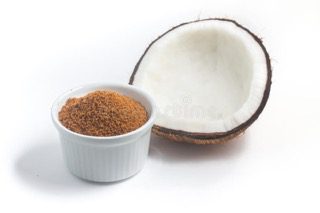

Coconut sugar is a natural sweetener made from the sap of coconut palms. It is a great alternative to refined sugar as it has a lower glycemic index and contains some vitamins and minerals. For dogs, there are no significant benefits to consuming coconut sugar, and it is not recommended to give them any sweeteners, including natural ones.
The risks of dogs eating coconut sugar include weight gain, dental problems, and digestive issues. Coconut sugar, like any other sweetener, can cause a spike in blood sugar levels, leading to obesity and diabetes. Additionally, sugar can stick to a dog’s teeth, causing tooth decay and bad breath. Finally, dogs may experience diarrhea, vomiting, and other digestive problems if they consume too much sugar.
In extreme cases, where a dog has ingested a large amount of coconut sugar, it is essential to contact a veterinarian immediately. They will assess the situation and advise on the best course of action. It is also crucial to store coconut sugar and any other sweeteners out of reach of pets to avoid accidental ingestion.
Safer alternatives to coconut sugar for dogs include natural fruits like apples and bananas, which contain natural sugars and are packed with vitamins and minerals. Vegetables like carrots and green beans are also great options as they are low in sugar and high in fiber.